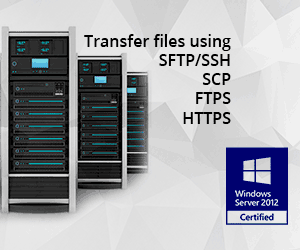How To Speed Up Windows Vista

Microsoft has published an article on speeding up Vista, aimed at general users.
It's not too bad. Here'southward the summary:
- Delete programs you never use
- Limit how many programs load at startup
- Defragment your hard drive
- Make clean upward your hard disk
- Run fewer programs at the same time
- Plow off visual effects
- Restart regularly
- Add more memory
- Check for viruses and spyware
- Disable services you don't need
All the same, information technology's a chip scattergun. I adopt a two-stage approach to improving performance (same applies to a single application):
- Find out what is irksome
- Speed it up, or leave information technology out
For example, the benefits of adding memory tail off after a certain point. Task Director volition tell you to what extent RAM is slowing downwardly Vista. Further, adding memory beyond 3GB is pretty much wasted on 32-bit Vista, since the system tin can only address 4GB, and the BIOS plus devices will apply a lot of the 4th GB address space. That said, a arrangement that is critically short of RAM (in other words, constantly swapping out retentiveness to the hard drive) is in my stance broken and unusable. Adding RAM in such cases delivers huge rewards.
Uninstalling programs gives little performance benefit if they are not running (unless deejay space is express). The aim is to reduce the number of running processes, not entries in the Start menu.
Vista defragments your drive regularly, by default. The benefits are often rather pocket-sized, so it would be equally valid to suggest removing it from the schedule, or scheduling it to run less oft.
The advice to restart regularly needs examination. Yes, a reboot tin can set a sluggish machine. But information technology shouldn't be necessary, and I call up that keeping Vista ever-on was intended to be a benefit of the Bone. Aye, here'southward a quote from Power Management in Windows Vista [ppt]:
- Windows Vista promotes the use of sleep as the default off land
In the right circumstances, Vista can run for ages without any problem. I've actually had Media Middle (Vista Ultimate) run for several months without any issues; though this kind of thing is not very green then that'southward some other reason to do regular switch-offs. Yet, to my mind "restart regularly" is a symptom of some problem that should be fixed.
Turning off visual effects is reasonable communication, though once again information technology may non yield much benefit. I tried it on my organization and was surprised how little departure it made. Reason: I am running with Aero and a decent-ish graphics bill of fare, and hardware dispatch seems to handle the visual effects rather hands. Once once more, if it's not the affair slowing yous down, so removing information technology won't speed you up. You lot tin can test this quite simply, though it is tedious. Endeavour it both ways. Did it make a difference? Mensurate it if possible.
Information technology really is worth using the congenital-in tools, like Task Manager and the Reliability and Performance Monitor, to see which processes are grabbing lots of RAM and CPU. One of the proficient things about Vista is that such tools are easy to observe. Click First, type "reliability", and click the link.
I'd too like to see mention of some favourite candidates for slowing down Vista:
i. Outlook 2007
ii. The indexing service
3. Anti-virus software
4. Windows Defender
Hmmm, at least three of these are from Microsoft. Possibly they are too embarrassing to mention.
Finally, I suspect disk performance is a large cistron in real-world Vista speed. The reason is that many apps are very talkative when it comes to disk access. Here'south something to effort. Go along to the Systernals site and download procedure monitor. This gives a good picture of what the actual processes on your Vista box are upwards to. Note how many events are occurring, how many of them involve file i/o, and which processes are responsible. Yous will likewise discover a large role of the reason why Outlook 2007 is so tiresome.
PS Another article, also simply published, has good coverage of swap files and ReadyBoost.
Tech Writing
Source: https://www.itwriting.com/blog/491-how-to-speed-up-windows-vista-official-and-unofficial-tips.html
Posted by: moodywasso1962.blogspot.com

0 Response to "How To Speed Up Windows Vista"
Post a Comment